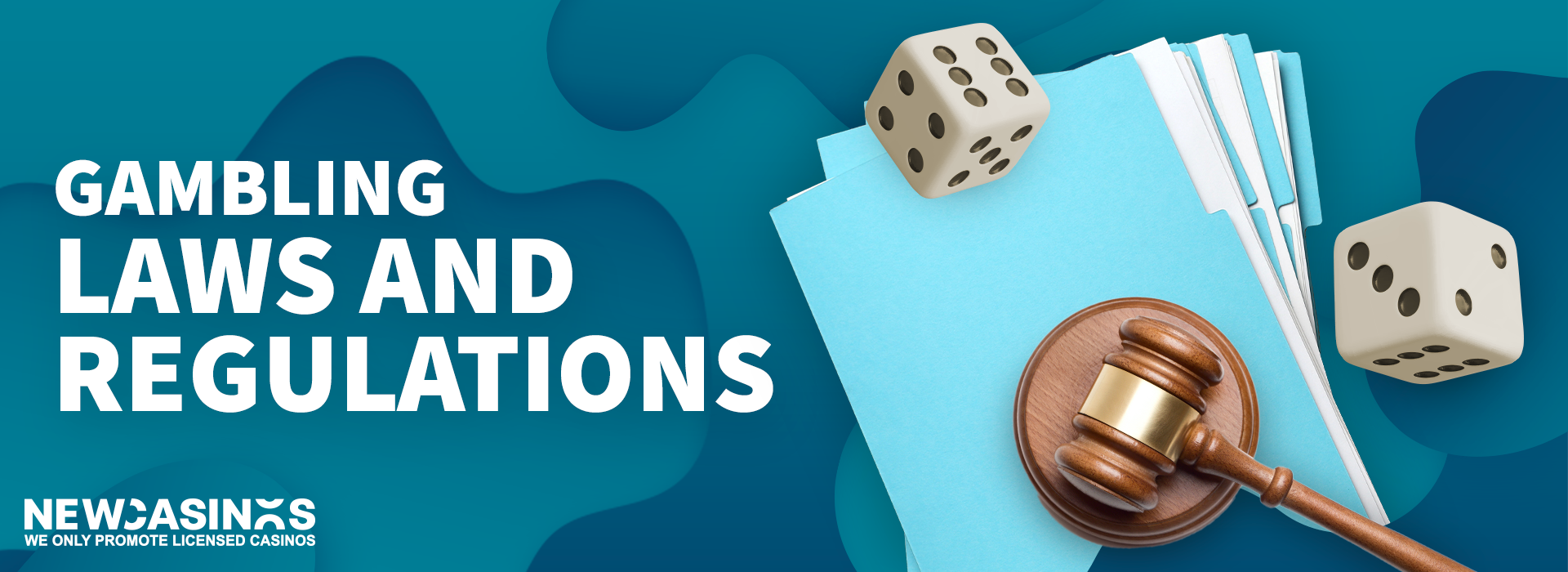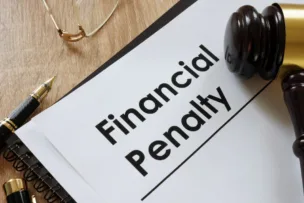
The Legal Landscape of Online Gambling in the UK
The UK online gambling laws go back to the Gambling Act of 2005, the main piece of legislation governing online gambling. The Gambling Act 2005 legalised internet betting and established the UK Gambling Commission, which replaced the Gaming Board. Here is a brief look at the history of UK online gambling:
1960
The Betting and Gaming Act legalised sports betting and casino gaming.
2005
The Gambling Act 2005 officially legalised online gambling and established the UK Gambling Commission.
2014
The Gambling Licensing and Advertising Act of 2014 made it mandatory for all remote operators to have a UK gambling licence and to pay taxes on profits from UK players.
2020
Ongoing review aims to update gambling laws.
2023
The release of the UK’s Gambling White Paper suggests changes to the Gambling Act of 2005 to ensure it accommodates smartphones and online gambling.
Key Regulations and Enforcement Governing UK Online Gambling
The main piece of legislation, which governs online gambling in the UK is the Gambling Act of 2005. This act is responsible for outlining terms relating to online gambling such as; betting, lottery and prize, protecting minors, ensuring fair conditions for players and operators, the requirements for all gambling licences, prohibitions, and sanctions and aims to fight crime like money laundering.
The Act is also responsible for the creation of the UK Gambling Commission. The commission ensures that the industry and operators under their licence meet the standards of the act.
The Gambling Act covers the following activities and products:
- Arcades: Adult and family arcades.
- Bettings: All bet types, either on live or virtual events.
- Bingo: Online and physical bingo games.
- Casinos: Online and physical casinos that operate in the UK.
- Lotteries: All lotteries including societal, private, and national.
- Gaming Machines: Including betting terminals, fruit machines, slots, and other machines.
- Gambling Software: Allowing players to gamble remotely.
Additional Legislation and Standards
There are additional legislations and standards in the UK that govern gambling operations, ensuring player protection and maintaining fairness:
Legislation/ Standard | Description |
|---|---|
Gambling Commission Licensing Conditions and Code of Practice (LCCP) | This important piece of legislation details the requirements for operators to obtain and maintain their gambling licences. The LCCP also covers aspects such as advertising, customer protection, social responsibilities and anti-money laundering. |
Remote Gambling and Software Technical Standards (RTS) | The RTS outlines the regulations for remote gambling operators in respect to technical requirements. The RTS looks at game fairness, player fund protection and responsible gambling. |
Proceeds of Crime Act 2002 | A requirement for operators to have systems that prevent money laundering and terrorist financing |
National Act of 1993 | This act established the framework and regulations for the operation of the UK National Lottery |
Advertising Standards Authority Codes (ASA) | A regulatory body that governs the advertising and marketing of gambling. Operator marketing material must adhere to these codes, including advertising restrictions targeting vulnerable individuals and responsible gambling messages |
Regulatory Bodies
In the UK, there is plenty of legislation in place to protect players and ensure that operators offer fair and legal services while adhering to standards, with two leading regulatory bodies ensuring these regulations are enforced and adhered to:
Regulatory Body | Purpose and Operations |
|---|---|
UK Gambling Commission | The main regulation body which licenses and regulates gambling operators, enforces the Gambling Act, and takes action against those who breach the rules |
Advertising Standards Authority Codes (ASA) | Regulates gambling advertising across all media: monitors, investigates, and handles complaints about gambling advertising. |
Navigating the UK Gambling Licensing Process
There are three types of UK Gambling Licences:
- operator
- personal
- premises
The UK Gambling Commission issues operating and personal licences, and local authorities grant premises licences.
Operating licences are further broken down into:
- online
- land-based
- ancillary
Operators that both have land-based and online services will need to have both of these licences. If an online gambling company operates from another country but provides services to UK gamblers, they will need a licence.
Applicants for a licence must be over 18 and specify the activities they are offering to obtain a licence. The UK Gambling Commission will evaluate, among other things:
- The identity of the applicant and people relevant to the applicant.
- Financial statements to ensure that the applicant can carry the business after obtaining a licence.
- Honesty and trustworthiness.
- Applicant’s history, experience, expertise, and qualifications.
- Whether the applicant has a criminal record.
Once you have submitted your application, paid the fee, and provided all supporting documents, the Gambling Commission will take about 16 weeks to review your application. Once you have obtained a licence, you will have 30 days to pay the first annual fee. After which, all relevant regulations and practice codes must be followed. The Gambling Act of 2005 covers a list of offences from underage gambling to providing gambling facilities without a licence, which all carry a fine and even imprisonment for illegal gambling activities.
At NewCasinos, we only recommend online casinos that hold a legitimate licence from the UK Gambling Commission so that you can ensure you are gambling in a safe and secure environment.
The Price of Play: How Taxes and Fees Impact UK Gambling
Operators need to pay taxes. There is the Remote Gaming Duty, which is a tax levied on the profits of online gambling operators offering their services to the UK, and of course, there is VAT. On top of the taxes, there are fees for licences issued by the UK Gambling Commission and annual fees for maintaining the licence and registration.
However, UK players do not have to pay tax on winnings. This includes all forms of gambling, such as online casinos, sports betting, bingo, and lotteries. Under UK law, gambling winnings aren’t considered to be taxable income. Instead, as mentioned earlier, the UK taxes the operator through levies and duties. However, there are a few exceptions to this.
Professional gamblers, those who make a living from gambling, may be subject to income tax on their profits because their winnings are considered to be part of their earned income.
However, as a UK player who enjoys gambling for fun, winnings are tax-free.
Responsible Gambling in the UK: Measures to Keep Players Safe
The UK Gambling Commission ensures that online operators protect players by imposing 5 measures that operators must abide by:
- All operators must have strict age verification processes in place to prevent underage gambling. The legal gambling age is 18 years in the UK. Operators must verify the age and identity of all players before allowing them to gamble. This is often done through the KYC process, where players are required to upload proof of ID and other documentation to verify their age.
- Operators must monitor their customer base regarding their gambling behaviour, identify those who might be at risk of developing a gambling problem, and offer support where necessary.
- Operators need to offer players tools to help them control gambling, including limits on deposits, time, and wagering. Self-exclusion is another tool that online casinos must offer. It allows players to exclude themselves from all activities and stop receiving marketing material from the operator. Operators are responsible for ensuring that these players cannot access their services.
- The UK Gambling Commission will introduce new measures to prevent the financially vulnerable from partaking in excessive gambling. These measures will be phased in through financial vulnerability checks and risk assessments.
- Online operators should provide easily accessible help for players to responsible gambling bodies like GamCare, the leading provider in the UK that offers support and advice to those affected by a gambling problem, and Gamstop, a free service that allows individuals to self-exclude from all UK-licensed gambling sites.
At NewCasinos, we ensure that all the online casinos we recommend promote responsible gambling and offer players various tools and resources. If a platform does not provide these tools, we will not recommend it, as we are committed to responsible gambling.
The Latest Developments in UK Gambling Regulations
- A white paper was released in 2023, outlining the changes to be made to the UK gambling market. These changes aim to ensure more player protection, and the Gambling Act 2005 is tailored to developments in smartphones and online gambling.
- A statutory levy on operators will be introduced, which is currently voluntary. This levy will assist in funding research, education, and treatment for problem gambling. The UK Gambling Commission will collect the levy, and the government will approve spending.
- A new stake limit has already been introduced for online slots. The maximum stake limit for 18- —to 24-year-olds is £2, and players 25 years and over will have a £5 limit.
- The review will also introduce enhanced player protection checks. Operators will now be required to do more to protect customers. Operators must conduct player checks on the highest-spending gamblers to ensure they are not causing financial harm to themselves. Checks will be performed on those considered to be at the highest risk of harm. These checks, though, will occur in the background using information already available online and will not interrupt gameplay unless there are signs of financial harm.
- The UK Gambling Commission will also examine how bonus offers are advertised and constructed to prevent them from being used in harmful ways and triggering players to spend more than intended.
- Other changes that we can expect are a ban on features that speed up gameplay or celebrate losses, removal of loopholes to stop under-18s from accessing any form of online gambling like scratch cards or fruit machines, giving the UK Gambling Commission more power to tackle and block unlicensed black market gambling firms from operating in the UK, and stricter processes for age verification and affordability.
Latest Regulations News
Keep up with the lastest news and gambling regulation updates below.






UK Gambling Laws and Regulations FAQs
Is online gambling legal in the UK?
Online gambling is legal in the UK as long as the UK Gambling Commission licenses the operator. UK players can partake in online slots and other casino games, sports betting, poker, bingo, and lotteries at licensed online sites. At NewCasinos, we have rounded up the best licensed online casino where you can play the best casino games legally and safely.
Do UK operators need a licence?
Yes, they do. To operate and offer services online to UK players, the operator must have a licence issued by the UK Gambling Commission. The operator must adhere to all laws and regulations to maintain their licence.
What is the legal gambling age in the UK?
In the UK, the legal gambling age is 18. Online casino operators must have a strict age verification process in place to prevent underage gambling. This means that players are required to submit documentation to verify their age and identity.
Do I have to pay taxes on my winnings?
In the UK, players are not required to pay taxes on their winnings. This means that you get to keep what you win. Instead, the UK taxes the operators through levies, etc. The main exception to this, however, is professional gamblers who earn an income from their gambling.
How can I practise responsible gambling?
Online casino platforms that operate under a UK Gambling Commission licence must encourage responsible gambling by offering players various tools and checking and interacting with players to ensure their customers aren’t forming a gambling addiction. Tools that online casinos offer include limits like deposit limits, the option to self-exclude, and links to support networks like GamCare.
What do I do if I have a problem with an online gambling site?
If you have a complaint with a UK-licensed gambling operator, you can try to resolve the issue directly with the operator. You can also escalate the complaint to the UK Gambling Commission or an Alternative Dispute Resolution provider if it cannot be resolved.
References:
- Gambling Commission – Licensing, compliance and enforcement under the Gambling Act 2005
- GOV.UK – Major reform of gambling laws to protect vulnerable users in smartphone era
- GOV.UK – New £2 maximum stake for under 25s playing online slots
- Gambling Commission – Safer gambling
- Gambling Commission – New rules boosting safety and consumer choice
- GOV.UK – Gambling duties: detailed information (Gaming Duty)
- Gambling Commission – Age, ID and financial verification



